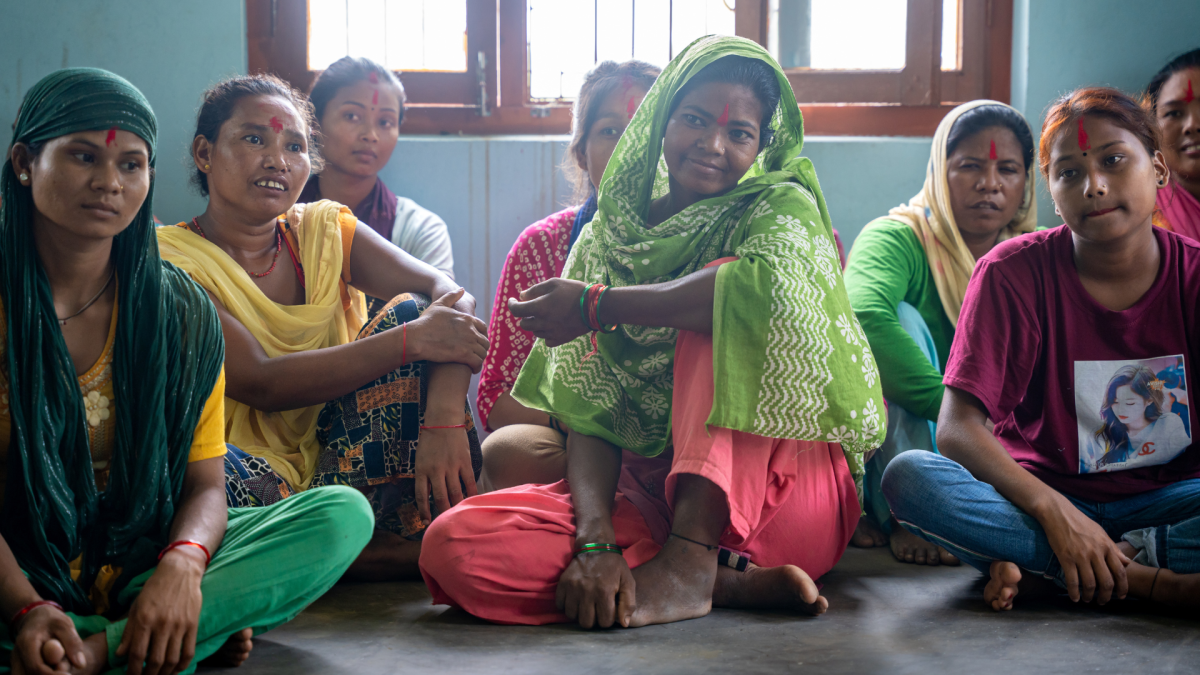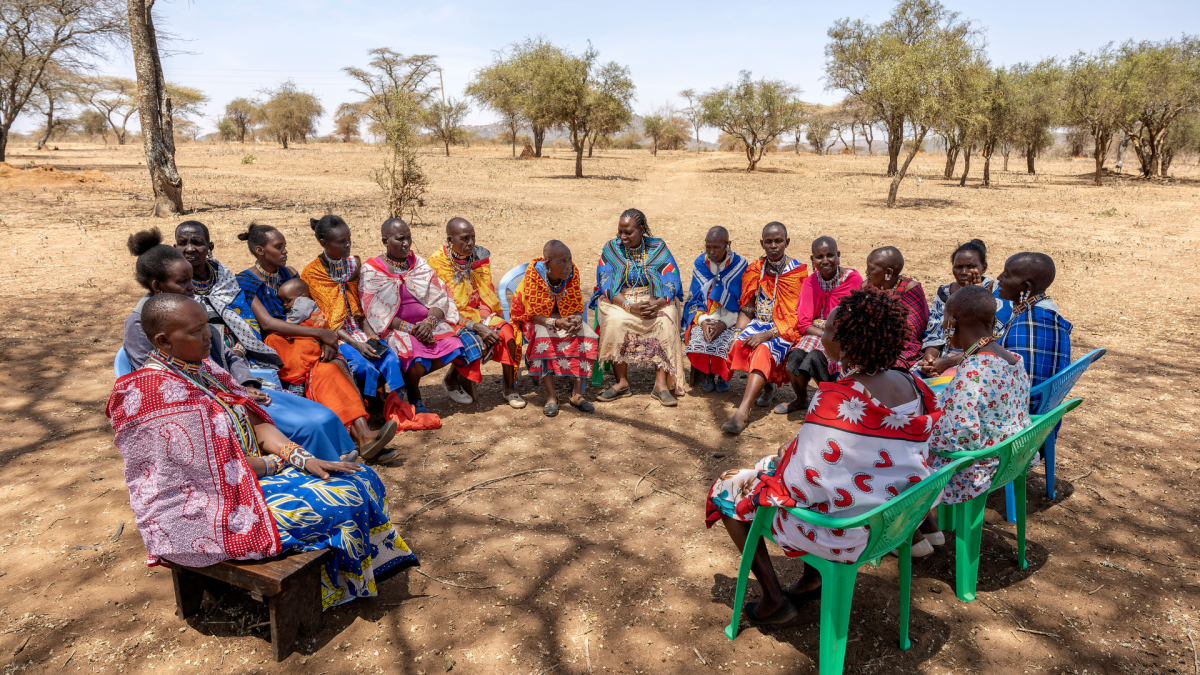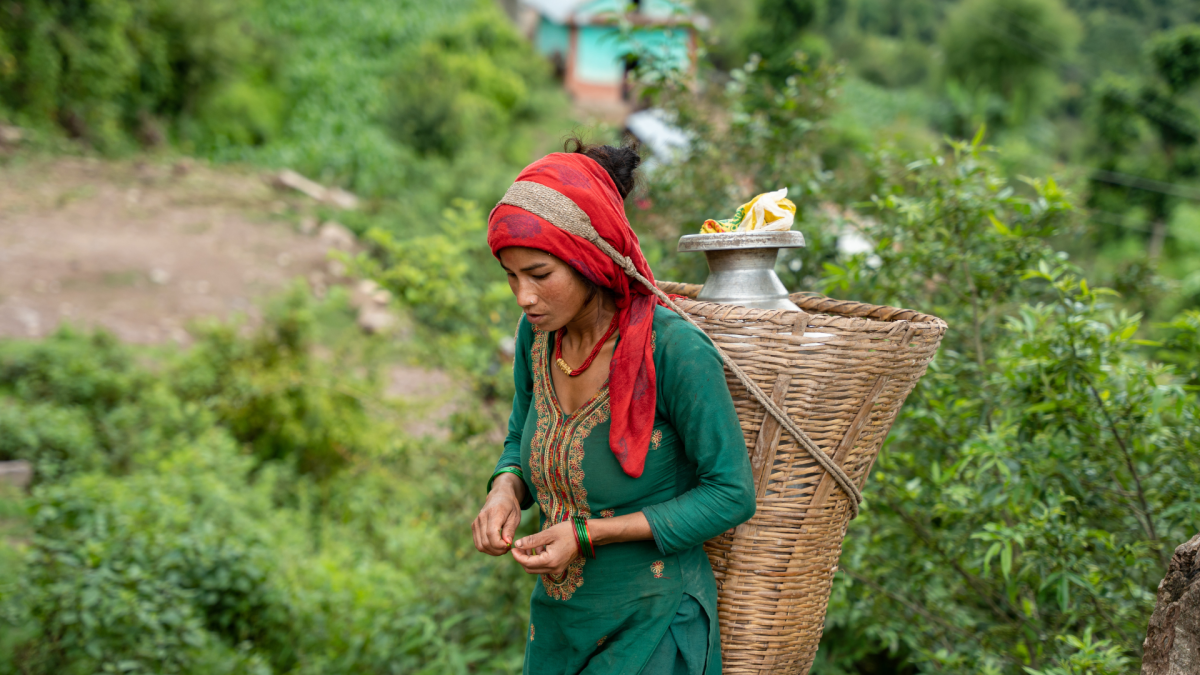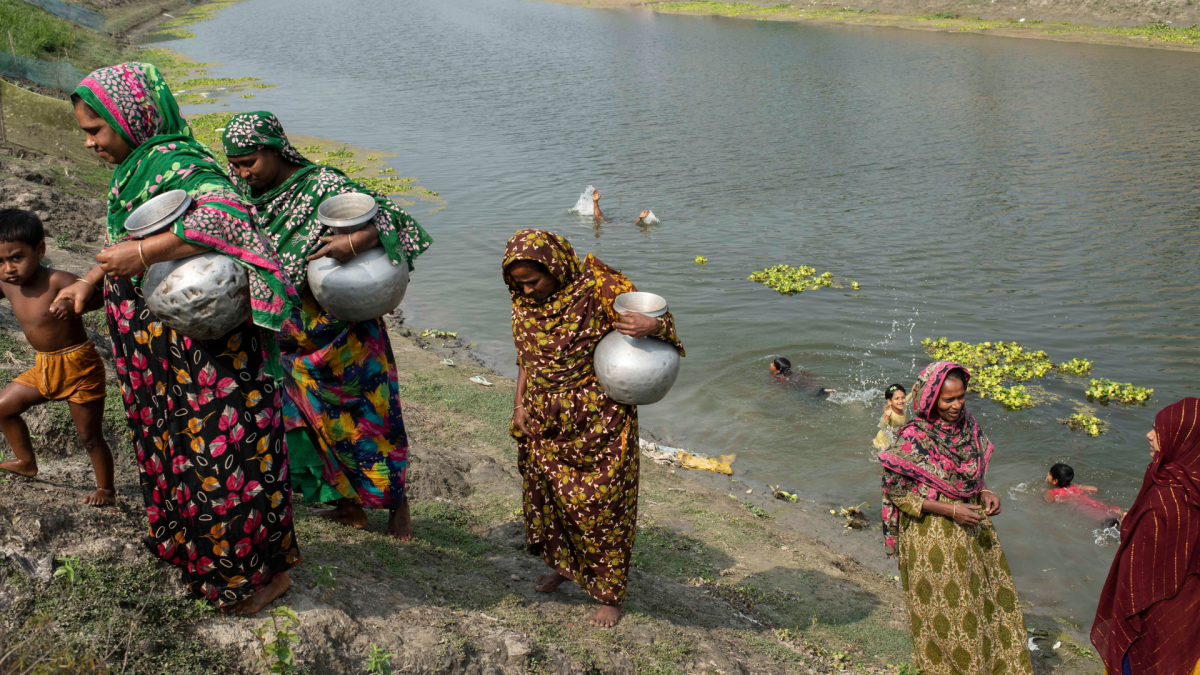How to make locally led adaptation truly locally led? Looking back on one year Water Justice Fund
In Kailali, Nepal, a village is fighting against the floods that are threatening their homes and their land. They have the knowledge, they have natural resources available to them, however one thing is missing: the funds.
That is why the women of this community requested a grant from Simavi's Water Justice Fund. And with success. With a loan of 690 euros, they could afford tools and materials, besides the bamboo and vetiver grass which grow locally, and mobilized the village to build new bio-embankments along the river, preventing it from flooding. Now, their land and village are protected.

This case embodies the principles of locally led adaptation, which are at the core of the Water Justice Fund . This fund, launched in 2023 by Simavi and Women Win, supports women groups and women-led community organisations with locally led climate actions. Local communities, and especially women and girls, are key players in climate adaptation. However, currently only a very small part of climate financing reaches the poorest communities that are the most vulnerable to climate change. Therefore, Simavi aims to make their solutions possible through the Water Justice Fund.
In the first year of the Water Justice Fund, we worked with 33 community groups in three countries: Kenya, Bangladesh and Nepal. In total, 120,000 euro in grants was dispersed over these groups. This first year has exposed challenges and opportunities. Designing and implementing a grassroots granting programme to be completely locally-led requires us to rethink what we think we know about climate adaptation and programme implementation. Different contexts require vastly different approaches, and shifting mindsets takes willingness from both the organisations and local communities.

Overcoming obstacles
Current climate financing mechanisms fail to reach the poorest communities, and especially women and girls. Therefore, the Water Justice Fund aims to identify the communities that are systemically left behind, and not only provide them with adequate financial means, but also empower them to realize their own solutions for climate-adaptation.
So how do communities in need and the Water Justice Fund find each other? In Kenya, our partner sent out a call for proposals at the county-level and communicated via public spaces such as churches and community centers. Here, the practice of forming women groups to tackle local challenges is widespread, and existing women groups were able to reply to the call for proposals to receive support from the WJF.
In Nepal and Bangladesh, our partners invited specific communities to submit proposals based on discussions about their needs. Here, our local partners went into the communities to discuss and identify problems that the local people were facing, and collaboratively decided on suitable action.
In all countries, it turned out to be crucial to consider cultural and linguistic barriers. Not only were calls for proposals announced and accepted in the local dialect, but also verbally, so that language and literacy are not obstacles in targeting the right communities. While this was a new way of working, also for some of our partners, it enabled us to target the communities who were the most in need, because these barriers had previously made collaboration on climate adaptation more difficult. Furthermore, working with partners that are local to the areas and understand the culture turned out to be crucial not only to identify the needs and wants of the communities, but also to build trust and familiarity with them.

Why only building waterpoints is not enough
Delegating the decision-making process to the grassroots level is a crucial aspect of locally led adaptation. This means that the communities decide themselves what is needed to become more climate resilient.
In Banglachuli Rural Municipality in Dang District, Nepal, nine households live on top of a hill, above the water source that serves their community. When a new pipe system was built in the area, it became apparent that it could not reach the houses on top of the hill due to the additional costs associated to the water pump. But now, with help of the Water Justice Fund, they have taken action to change this.
When the Ujjwal community group reached out to the local CBO Samaj Bikas Sanjal in Nepal, it was clear what was needed: an extra tank and water pumps to expand the water system, so that the water could be pumped up towards the households on top of the hill. The community group submitted a proposal to the Water Justice Fund and received approximately 3.000 euros. However, while this grant covered the cost of extending the pipeline, extra funds were required to buy a water pump and build an extra tank up the hill.
Receiving the funds encouraged them not to give up on their efforts to build the water tank on top of the hill and, with support from the local CBO, they decided to extend their lobby for financing. Previously, lobbying at the local government was unsuccessful, because the group members could not meet with local officials. The partners from Samaj Bikal Sanjal helped to arrange meetings with local officials, where the community members could put their needs forward. In these meetings the government officials agreed to contribute financially and to provide technical support. Currently, the community has built a water tank and connected a water pump to each household. Many members provided their labour for free, so that soon all households will have running water in their house.
Beyond grant giving
In Balli Union, in Bangladesh, many people suffer from health issues due to the lack of safe drinking water and toilets. Our local partner visited the community and met with the women who suffered the most from the lack of water and sanitation. The women decided to set up a women’s group to support their decision-making power and authority. More than solely focusing on applying for grants, they decided to focus on their capacity-enhancement, receiving training in lobby and advocacy. These skills proved an important tool to realize their human right to water and sanitation by holding those who bear the responsibility for their rights accountable.
Based on the knowledge they received through these trainings; the women created a petition to collect signatures for a new water tank. Because of their determination and the awareness of their rights, they were able to convince the government to provide their community with rainwater tanks. With help of the WJF, they were able to amplify their voice towards the government to advocate for their rights.

Besides lobby and advocacy training, technical training turned out to be sometimes required to increase awareness about climate resilience and solutions to water problems. One community in Nepal requested funds to build a rainwater harvesting system. But their proposed system did not include a method to flush out the dirt from the rainwater, which would cause the system to get clogged. The community group had not realized that this would cause issues. Therefore, once adequate funds became available, water engineers from the local CBO provided them with extensive training on the best methods to harvest rainwater and on how to maintain and repair the installed harvesting system. Enhancing their knowledge and making the community more resilient to water issues.
The next steps
Realizing locally led adaptation to its fullest potential, the ambition of the Water Justice Fund, is not a quick process. It requires a shift in how international cooperation is traditionally approached. Not only from us, but also from our partners and the people we work with.
In the first year of the fund, we've identified specific areas where localization efforts can be significantly scaled up. For example, in communities where strong women's groups are already active, these groups have shown great potential in organizing around climate issues. However, in communities where such groups are absent, we need to collaborate closely with local partners and the communities themselves to create opportunities and motivation for women to come together and develop climate solutions.
The adoption of locally led adaptation principles by the entire international development sector won't happen overnight. However, it's crucial that we persist in making climate financing as inclusive as possible. This requires a careful balancing act of managing expectations on both sides about the needs and the support that can realistically be provided.
The next step for the Water Justice Fund involves strengthening the governance on both the local and international level by the creation of a WJF advisory board, comprised of experts from the countries where the Water Justice Fund is active. At the local level, we improved the grant review process by establishing a local peer panel with lived experiences from the area. The idea is that with time, the fund will be fully locally led. By empowering communities to realize their own solutions, they will be able to become the driving force for positive change and improve access to water and sanitation for their own and other communities. The first year of the Water Justice Fund has taught us that locally led adaptation is necessary and needed for a climate just world. We will continue to support women and girls on the forefront of climate action, to make safe water, toilets, and equal chances available for all.
This article was written in collaboration with Jane Nyamwamu from Neighbours Initiative Alliance, Sarita Shah from Sahakarmi Samaj and Pragati Bajracharya from Simavi.
Do you want to know more about Water Justice Fund or become a partner? Contact Pragati Bajracharya, programme officer



